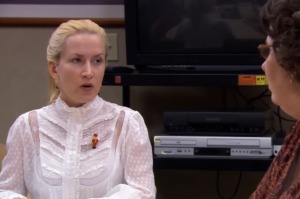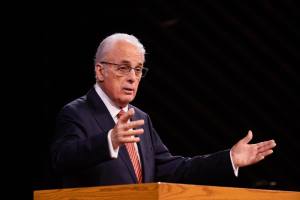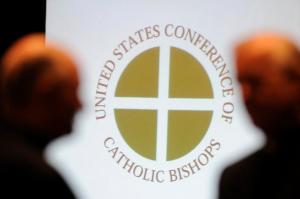New Book Explores Role of Methodism in American Politics
A book that boasts of being "the first of its kind" to document the history of the Methodist Church's involvement in American politics has been released.
Mark Tooley, president of the Institute of Religion and Democracy, wrote Methodism and Politics in the Twentieth Century as a chronicle of the history of the denomination's influence on society.
A Methodist himself, Tooley first became interested in the topic of Methodism and politics as a college student who was part of his church's delegation to the Virginia Conference of the United Methodist Church.
"My new book is not itself political or even analytical. It's just a straight forward history of what the church did and said politically across a hundred years," said Tooley in an interview with The Christian Post.
"So I hope it will be helpful to conservatives and liberals and people in between."
"To my knowledge it's the first of its kind in terms of chronicling the political and social influence of Methodism in any century but certainly for the twentieth century," Tooley said at his book launch event on Monday in Washington, D.C.
He hopes the book will "spawn and influence others to follow through on other histories."
Methodism Rising
Although the book focuses on the many political efforts that the Methodist Church was involved in during the 20th century, Tooley said the influence Methodism had came from its rise in numbers during the 19th century.
"It became the largest church in America in the early 19th century thanks mostly to the exertions of the great bishop and circuit rider Francis Asbury," said Tooley to CP. "You could ascribe his success probably to its populist appeal and the fact that it was a church very much more for regular people."
According to Tooley, Methodism "became more of the established church as the 19th century went on" and from there became "the most influential church in America" at the time.
Tooley believes that 19th century Methodism was "very pragmatic," "relied on lay preaching and appealed to the rough and tumble of the frontier."
The Victory and Defeat of Prohibition
Despite its notable prominence, the decline in numbers of the United Methodist Church has been well documented by Tooley's IRD and others.
"The denomination has been losing members every year since 1964 and even before that was losing political influence for a number of reasons," he noted.
Tooley attributed the beginnings of the decline of Methodist political influence to a cause the church had actively and overwhelmingly supported: prohibition.
"In my book I surmise that prohibition (of alcohol) was its greatest political success and ultimately its biggest failure. And it really never regained political momentum after prohibition's repeal," said Tooley.
He alluded to this during his book launch.
"I should note that most of the people I write about in this book would very much disapprove about us being here with wine and beer," said Tooley, receiving laughter from the audience.
Tooley told CP that after the 1930s the Methodist Church "never really had a consensus" on other issues "like it had had in the early part of the 20th century on issues like prohibition."
Methodism and Politics in the Twentieth Century was released by Bristol House, Ltd and is Tooley's first book since his 2008 work Taking Back the United Methodist Church.




























